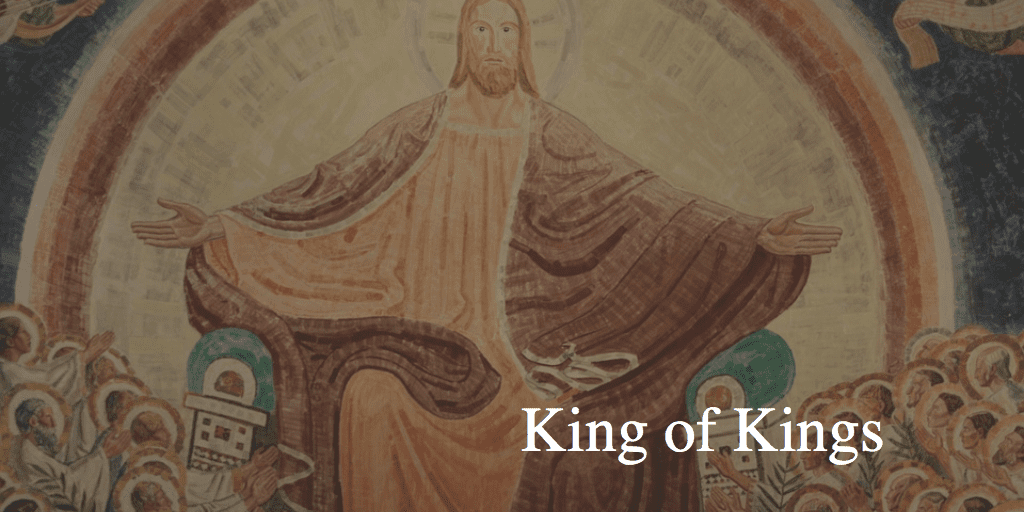
Today I want to close out this series on Christians and politics with a final plea to reconsider the implications of what we Christians say we believe and how that must matter in November, but probably not in the ways we think.
A few years ago, I wrote a book on Acts called “How to Start A Riot” In it, I make the argument that most of the reasons Christians in America struggle with either the idolatry of politics or the total neglect of politics is because we don’t understand the Theology of the book of Acts.
Acts is a really bizarre book, that has a really strange ending. If you think about it, Luke ends his story in a really bizarre way. It’s like watching Luke Skywalker about to blow up the Death Star when suddenly the credits start rolling.
But Acts ends this way for a reason.
Luke ends Acts by telling a story of Paul. And Luke is telling the story in such a way to raise the question, “What is going to happen to Paul?”
Here is this apostle, risking everything, heading to Rome, the epicenter of world power. And he is going to stand before Caesar, the most powerful man in the world.
But then Luke stops short.
He never tells us what happened to Paul.
And in order to understand why we have to go back to the very beginning in Acts 1.
The disciples ask Jesus right before this would be global movement begins to pick up a head of steam: “Lord, is it at this time that you are going to restore the Kingdom to Israel?”
Jesus responds in a kind of cryptic, none-of-your-business about times and dates response. I think that most people read that and assume that what that meant was that Jesus was answering their question with a “No”.
But that’s only because we don’t live in the first century.
Because the very next moment after Jesus’ response is Jesus’ ascension. Which is huge. Because Jesus isn’t just transformed into the first Superhero here.
This event is God making a statement, one last parable. To ascend meant something back then, and it’s implications are huge for today as well.
Notice how the New Testament scholar N.T. Wright says this:
As any watcher of the Roman Imperial cult could have told you (and the Imperial cult was the fastest-growing religion in the first-century Mediterranean world), the one who is seen being taken up into heaven is the one who is thereby revealed as divine, as the ruler of the present cosmos. That was how Augustus made out that Julius Caesar was divine. On the triumphal arch of Titus in Rome there is a carving of Titus ascending to heaven…From the pagan point of view, if the story [of the ascension] means anything it means an implicit challenge to Caesar. The first thing we have to get our heads and hearts around as we read Acts is its unequivocal declaration and celebration of the fact that Jesus, the King of Israel, is the world’s rightful Lord.
In other words Jesus’ answer to the disciples question was yes.
The book of Acts makes much better sense in light of this. These people are now unafraid of pseudo-kings and rulers, because they now know who those rulers and leaders answer to. And they’re proclamation means that no matter what those who have power do today, they will bow their knee to the world’s true Lord tomorrow.
I think most readers of Acts would really like to know how this story ends. Does Paul live, does Nero kill him? But If you are asking if Paul died you’re asking the wrong question, because the truth is Paul was in a place where death could no longer touch him.
The reason Acts frustrates us so much is because we are asking how does this story end, does Paul die?
But Acts is asking are you ready to live?
See the reason Acts doesn’t answer what Caesar says is because Caesar isn’t Lord, he doesn’t have the keys to life and death. He can’t kill Paul, nothing can, because Paul’s life is hidden in Christ. Maybe the reason we don’t hear Caesar’s judgment in the end of the book is just another subtle way of saying what Acts has been saying all along.
That Caesar isn’t Lord.
You’re Scaring the Children
A few months ago, Andy Stanley gave an excellent sermon about avoiding “Election Infection” where he told people who were terrified of losing territory in American politics that we need to re-evaluate the way we talk about politics.
In fact, here’s a video of what Stanley actually said “You’re scaring the Children”
I mentioned earlier in this series that the top reason for why people are walking away from Church, is because, at least by outsiders, we are sometimes seen as a outpost for political purposes.
Now I’m sure that there have been other seasons of our culture where people have been so outspoken (and sometimes downright mean) in political discourse. But I haven’t seen them. And if the church becomes just another bastion of that, than count me out too.
And like Stanley says, that doesn’t mean that Christianity is just a private faith. Policies matter, elections matter, but for Christians they matter in much different ways. Christians approach the public sphere much differently than Caesar’s tactics.
And here’s where I think Acts has got something to say to us. Because to say Jesus is Lord still means something for our world today.
Look once again at Wright:
The claim that ‘Jesus is Lord’ was never, in the first century, what we would call a religious claim pure and simple. There was no such thing as religion pure and simple. It was a claim about an ultimate reality which included politics, culture, commerce, family life and everything else you could think of. And if you stop saying ‘Jesus is Lord’ out of deference to the private opinions of your friends and neighbors, Caesar smiles his grim smile and extends his empire by one more street. After all, the great eighteenth-century virtue of tolerance was developed not least by those who were keen on extending their geographical or industrial empires, and who didn’t want God breathing down their necks to stop them. Keep religion in the private sphere and we’ll run the public square. And to that idea Luke says a clear No; and so must we.
Caesar will always co-opt and coerce to make you think that his agenda’s must also be the Lord’s. And while Saul the Pharisee might have fallen for that, Paul will not. Because he’s seen the risen Lord and now he isn’t impressed by the parodies.
I think this is why Acts doesn’t let us hear Caesar’s voice. His judgment isn’t really that final, and in the end the man who everyone else is terrified of doesn’t have the last word. In fact, he doesn’t have a word at all.
Because Caesar isn’t Lord.
Jesus has ascended, He and He alone, is the King of Kings.
So stop scaring the children.












